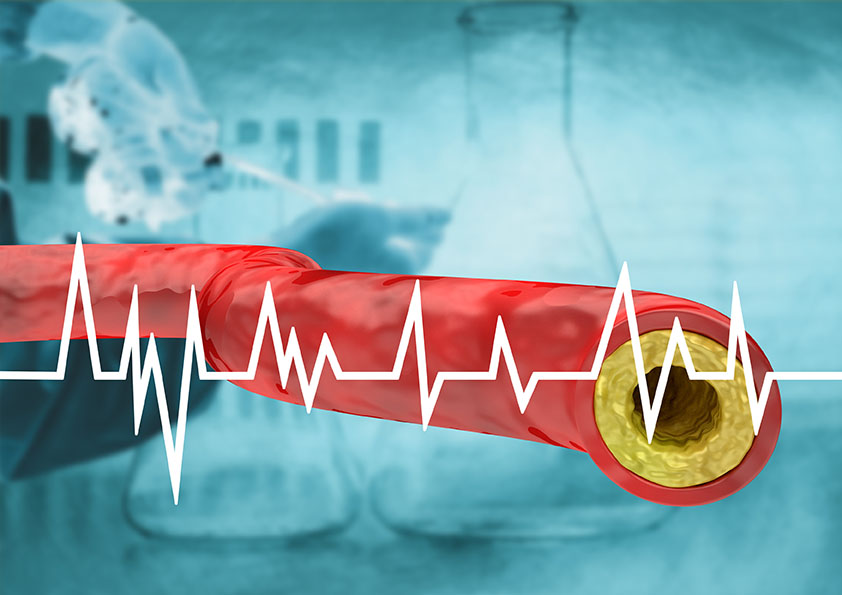“Cholesterol Doesn’t Cause Heart Disease.” Is this Claim Dangerous and Wrong?

In recent years, a vocal minority has promoted the idea that cholesterol does not cause heart disease. This is also known as the cholesterol myth. This narrative has gained traction on social media and in some alternative health circles. However, these claims are fundamentally flawed and contradict decades of robust scientific research, clinical trials, and real-world cardiovascular outcomes.
Cholesterol and Heart Disease: Myth vs. Truth
But is there any truth to this assertion? It depends on the terminology used to make the point. The key point is that atherosclerosis has multiple causes, and cholesterol is one of them. Instead, most advocates of this line of thinking are more interested in social media engagement, selling products, and telling people what they want to hear.
The cholesterol myth advocates would be providing better information by mentioning that up to 50% of people with normal cholesterol can have heart attacks. In the primary care setting, often only cholesterol is treated, and there is no detailed preventive cardiovascular plan. It takes much more than just a cholesterol drug to prevent heart attacks and strokes.
The role of cholesterol and atherosclerosis is complex, requiring in-depth knowledge, as is the case with many aspects of medicine.
Using the term “cause” instead of terminology such as “promoter of atherosclerosis,” “a risk factor for atherosclerosis,” or “one important cause” would be better terms. Blaming cholesterol as the sole cause of atherosclerosis, the most common cause of coronary artery disease, and thus heart attacks, is too simplistic.
There must be oxidative stress, inflammation, and immune activation coupled with endothelial dysfunction to create dangerous arterial plaque. LDL feeds this process, but is not the sole cause.
LDL Cholesterol and Atherosclerosis
Let’s examine the data linking LDL cholesterol to atherosclerosis.
Atherosclerosis is a progressive disease characterized by the buildup of cholesterol-laden plaques within the walls of arteries. The initiating event responsible for bringing the cholesterol into the artery wall in the first place is the retention of apoB-containing lipoproteins (primarily LDL) in the subendothelial space, where they undergo oxidation and trigger a cascade of inflammatory responses.
This isn’t speculative. It’s been directly observed in:
- Pathology studies (e.g., the PDAY study)
- Animal models of hyperlipidemia
- And human genetic disorders like familial hypercholesterolemia, which cause premature atherosclerosis and cardiovascular death
Key Evidence Supporting the Role of LDL Cholesterol in Heart Disease
- Epidemiological Studies
Large-scale studies, such as the Framingham Heart Study, the INTERHEART study, and MESA, have consistently shown a direct relationship between elevated LDL cholesterol and an increased risk of cardiovascular events. - Randomized Controlled Trials (RCTs)
Statin trials (e.g., 4S, WOSCOPS, JUPITER, PROVE-IT) have demonstrated that lowering LDL-C reduces heart attacks, strokes, and cardiovascular deaths — not just biomarkers, but actual hard outcomes. The Cholesterol Treatment Trialists’ Collaboration meta-analyses show that every 1 mmol/L (38 mg/dL) reduction in LDL-C results in about a 22% reduction in major cardiovascular events. - Mendelian Randomization
Genetic studies confirm causality. People with genetic variants that lead to lifelong lower LDL levels have a significantly reduced risk of coronary events, even when other risk factors are present. - Imaging Studies
Intravascular ultrasound trials (e.g., ASTEROID, REVERSAL) have demonstrated regression of atherosclerotic plaque with intensive LDL-C lowering, particularly when LDL drops below 70 mg/dL.
What About “High Cholesterol Without Arterial Plaque”?
Some people with high cholesterol never get heart attacks and have very little plaque in their arteries, but this does not refute causality — it reflects that atherosclerosis is multifactorial. Other protective factors (e.g., high HDL, low inflammation, good insulin sensitivity, stress levels, genetics, diet, and lifestyle) can counterbalance the risk, but not eliminate it.
To say “cholesterol doesn’t matter” because not everyone with high cholesterol has a heart attack is like saying “smoking doesn’t cause cancer” because not every smoker gets lung cancer. It’s biologically naive and statistically irresponsible.
The Source of Misconceptions Around Cholesterol and Heart Disease
- Misinterpretation of Studies
Some studies fail to find an association between cholesterol and heart disease in elderly populations or specific subgroups, leading to false generalizations. These are often confounded by survival bias, medication use, or comorbidities. - Conflating Dietary Cholesterol with Blood Cholesterol
While dietary cholesterol has a smaller impact on serum levels than previously thought, this does not mean blood cholesterol isn’t harmful. The confusion between dietary intake and physiological effect is a common fallacy. This could be confusing because studies are showing that the intake of dietary cholesterol can be preventive for conditions such as Alzheimer’s disease, but high LDL cholesterol in the blood seems to promote Alzheimer’s disease. - Low-Carb and Carnivore Echo Chambers
Specific niche diet communities claim that high cholesterol on ketogenic or carnivorous diets is “healthy.” But these anecdotal claims are unsupported by outcome data and ignore the broader evidence base. - Intake of Saturated Fat and Coronary Artery Disease. It’s not the saturated fat itself that’s the problem; instead, it’s whether a person is sensitive to it and develops high LDL cholesterol as a result. Eating high levels of refined carbohydrates, such as sugars and refined grains, is a bigger risk factor.
What the Guidelines Say
Every major medical and cardiovascular society supports the role of LDL-C in atherosclerosis and its treatment:
- American Heart Association (AHA)
- European Society of Cardiology (ESC)
- National Lipid Association (NLA)
- World Health Organization (WHO)
The consensus is clear: LDL-C is a causal factor in atherosclerotic cardiovascular disease, and lower levels are preferable, particularly for individuals at high risk. Although heart disease is multifactorial, elevated LDL-C continues to be a significant modifiable risk factor.

